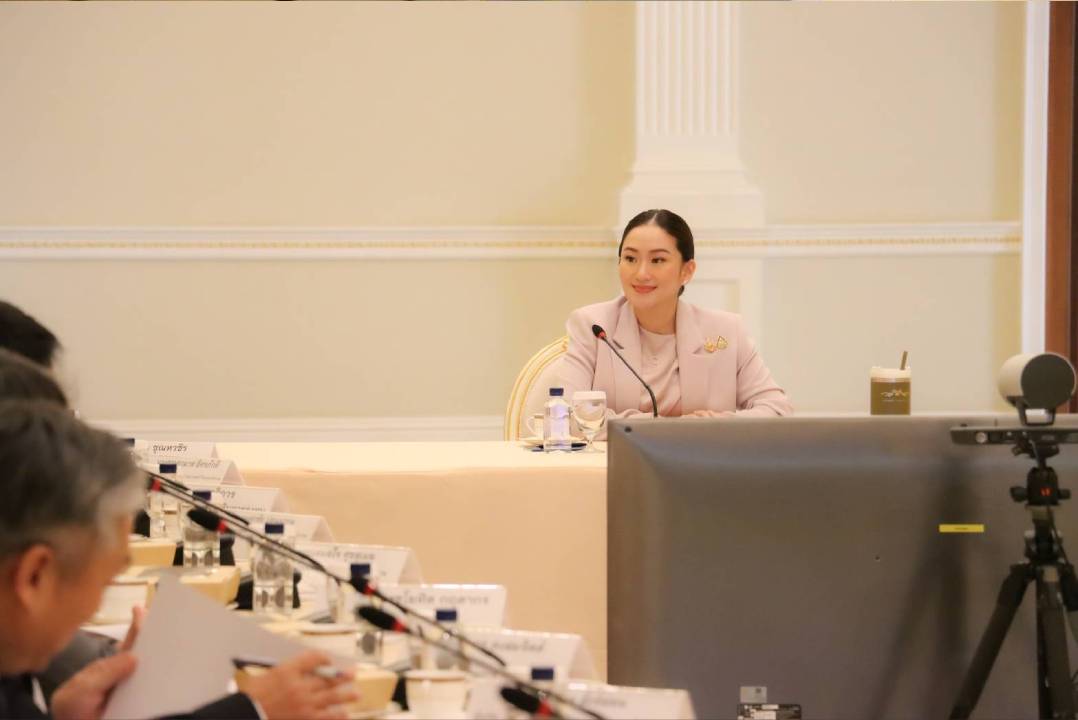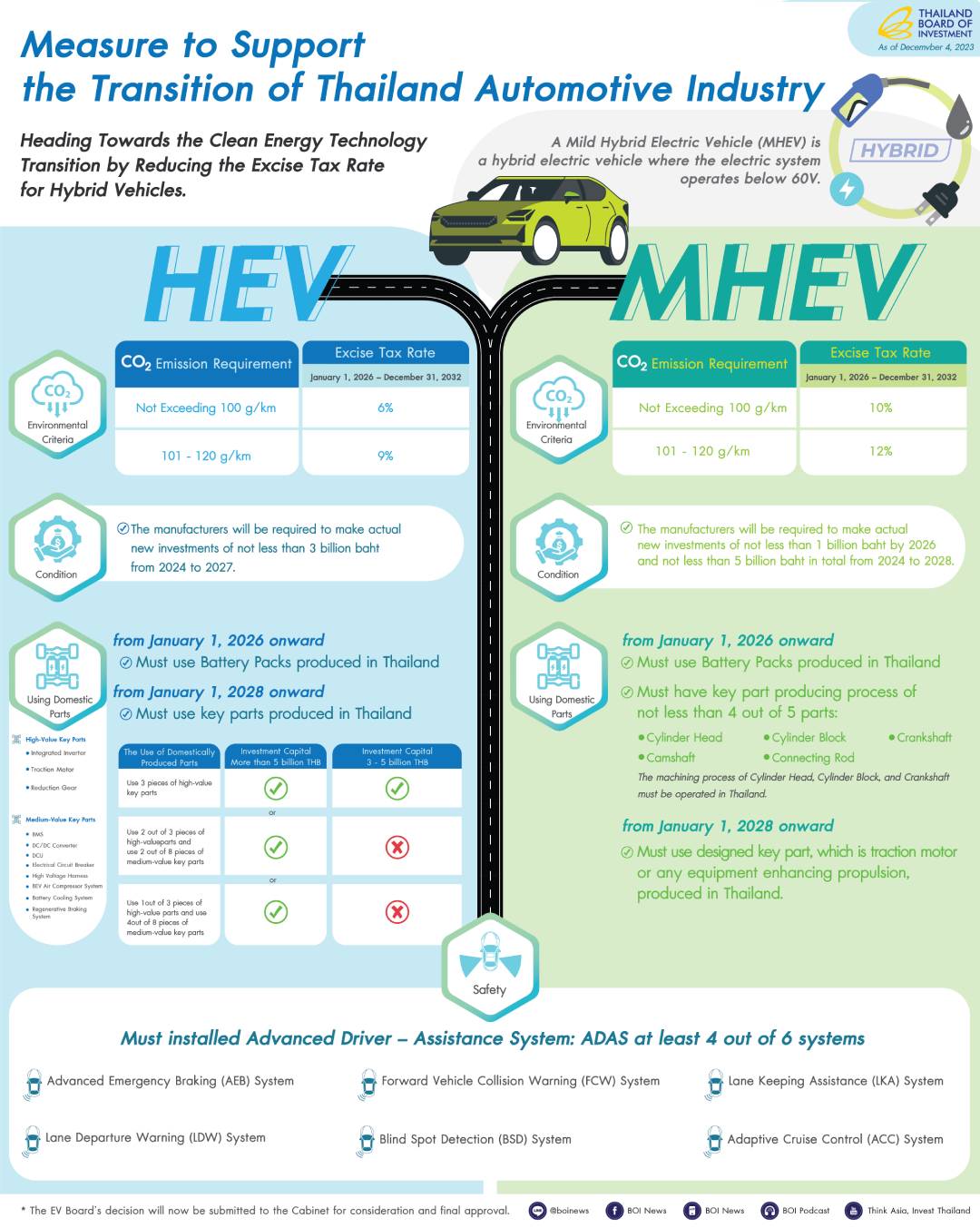
Thailand’s National Electric Vehicle Policy Committee (EV Board), chaired by Prime Minister Paethongtarn Shinawatra, today approved to give more time to makers of battery electric vehicles (BEV) to meet their production commitment under the so-called EV 3.0 incentive package that required them to produce locally to compensate for the vehicles they imported from the start of the subsidies program in 2022 to end 2023. The Board also approved an amended version of the earlier announced plan to promote the local production of hybrid vehicles.
"The measures approved today by the EV Board further demonstrate our commitment to electrification of the whole automotive industry and the full support we are providing to manufacturers during the transition,” Mr. Narit Therdsteerasukdi, Secretary General of the Thailand Board of Investment (BOI), who is also the secretary of the EV Board, told reporters at a press conference held after the EV Board meeting at Government House in Bangkok.
The portion of the manufacturers’ production commitment not completed under the EV 3.0 package will be transferred to the conditions of the EV 3.5 incentive package, but will not receive subsidies under either package. The subsidies for the EV 3.5 package will only come into force once the production for the amount transferred from the EV 3.0 measure is completed.
The manufacturers will also be allowed to re-export the completely built-up cars (CBU) they imported under EV 3.0, and are waiting to be sold, in order to reduce the volume of the compensatory local production.
The EV 3.0 incentive package requires the local production this year of one vehicle for each vehicle imported earlier. The ratio will rise in 2025 to 1.5 vehicles for each vehicle imported.
The EV 3.5 incentive package, which took effect in 2024, requires the production in 2026 of two vehicles for each vehicle imported under the scheme. The ratio will rise in 2027 to three vehicles for each vehicle imported.
A total of 26 manufacturers have applied to these incentive schemes.
The EV Board also approved a revised incentive package for the temporary lowering of the excise tax rate for locally produced hybrid electric vehicles (HEV) that was first approved in July 2024. The revised package now includes an additional incentive category for the mild hybrids electric vehicles (MHEV) featuring electrical systems with a voltage lower than 60 volts.
The reduced rate for MHEV will be effective during the period 2026-2032, and will apply to vehicles with no more than 10 seats, on the condition that the vehicles meet low CO2 emission requirements, feature at least 4 of the 6 Advanced Driver-Assistance Systems, or ADAS, and use designated key parts produced in Thailand. The package also requires the manufacturers and their affiliates make new investments in Thailand of not less than 1 billion baht (ca. US$ 29.2 million) by 2026 and not less than 5 billion baht in total from 2024 to 2028.
The EV Board’s decisions will be submitted to the Cabinet for consideration and final approval.
Thailand, the largest automotive manufacturing hub in Southeast Asia, and the 10th largest car producer in the world, started providing incentives for the sector’s electrification in 2017, and is supporting the production of pure electric and hybrid vehicles of all types, including passenger cars, commercial vehicles, trucks, as well as two-wheelers, three-wheelers, and boats.

